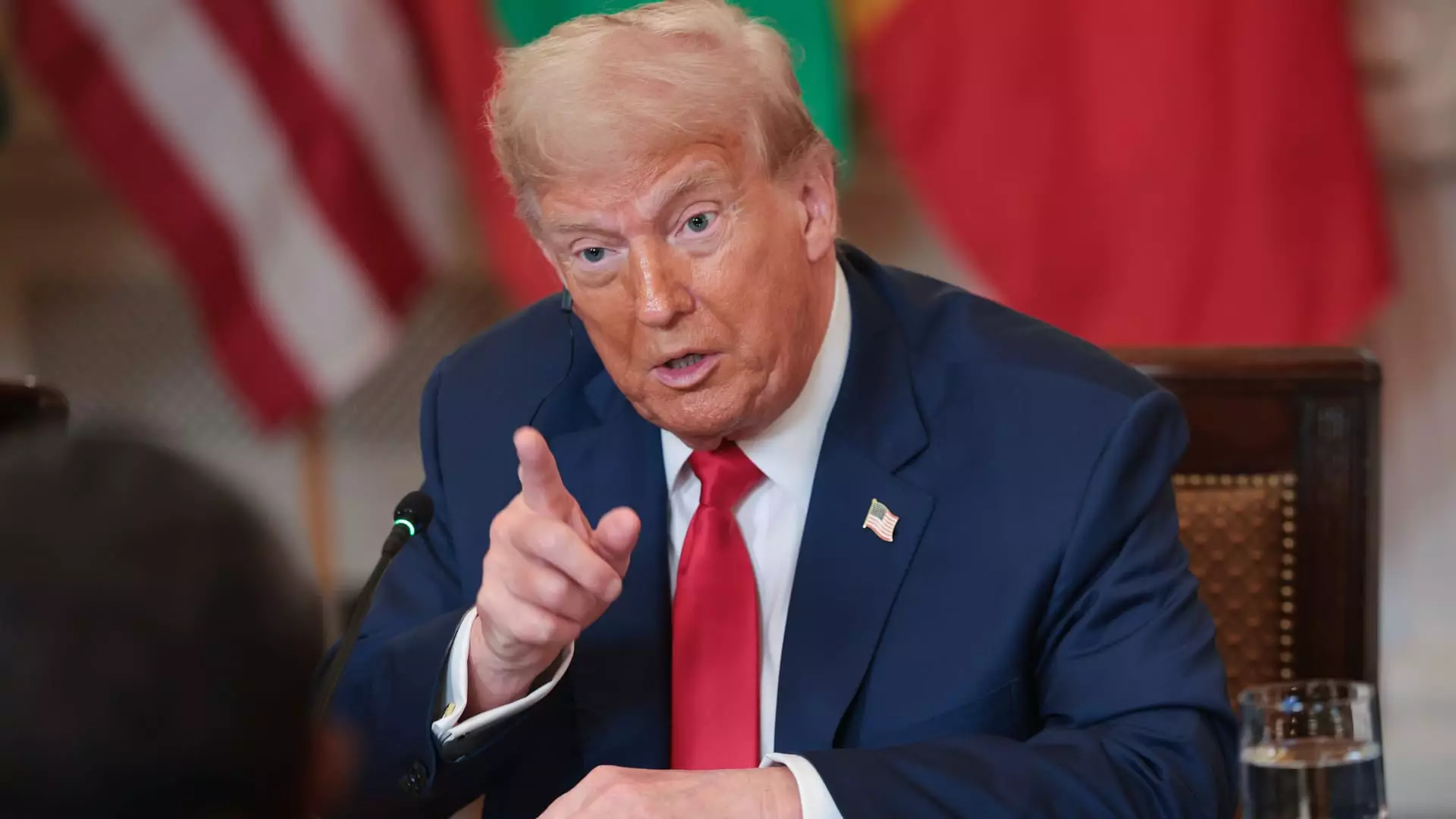In recent months, the approach of the United States under former President Donald Trump’s direction has veered dangerously toward economic brinkmanship. The decision to impose a staggering 50% tariff on Brazilian imports is not just a misguided economic maneuver; it embodies a broader failure to recognize the complexities of global trade and diplomacy. Using tariffs as a tool for political retribution—especially targeting Bolsonaro’s legal troubles—sends a troubling message about America’s willingness to weaponize economic policy in ways that undermine international stability and cooperative relations.
While Trump claims that these tariffs are necessary to redress perceived injustices, the reality is that they instead exaggerate conflicts, inflate tensions, and threaten to spiral into a damaging trade war. The singling out of Brazil, a nation with which the U.S. maintains substantial trade balances, highlights a troubling preference for aggressive posturing over respectful engagement. Tariffs may seem like a quick fix or a show of strength, but history demonstrates that they ultimately undermine economic growth, disrupt supply chains, and hurt consumers on both sides of the border.
Politicizing Trade: A Step Backward for Democracy and International Norms
Trump’s narrative frames Brazil’s internal political crises—particularly the legal proceedings against Bolsonaro—as a justification for punitive tariffs. This approach reflects a disturbing tendency to conflate domestic legal issues with international trade policy, blurring the line between diplomatic dialogue and partisan interference. Such tactics risk politicizing economic relations, turning them into leverage for ideological battles rather than avenues for mutual benefit.
By explicitly linking tariffs to Brazil’s internal political situation, Trump signals a willingness to manipulate trade relations as a form of diplomatic punishment. This undermines the very principles of international law and respect for sovereignty. Moreover, it sets an alarming precedent, suggesting that a country’s internal affairs could dictate its trade privileges—a notion that destabilizes the foundational norms of peaceful and respectful international cooperation.
Economic Consequences: Short-Term Gains, Long-Term Damage
From a purely economic perspective, the imposition of such high tariffs appears shortsighted. While Trump champions the idea that these measures will rectify “injustices,” the reality remains that America’s trade surplus with Brazil—amounting to billions—does not warrant punitive tariffs. Instead, unilateral tariff hikes often lead to retaliation, diminishing American exports and raising costs for American consumers and industries relying on foreign raw materials or components.
Additionally, the broader implications extend to global economic stability. Tariffs often escalate into tit-for-tat responses, threatening to ignite broader trade conflicts that can depress economic growth, destabilize markets, and exacerbate inequalities. The simplistic view of tariffs as tools to correct perceived injustices neglects the interconnected nature of the modern economy, where cross-border supply chains are integral to competitiveness and innovation.
The Illusion of Power and the Reality of Isolation
Trump’s tariffs are often portrayed as displays of strength and sovereignty. However, they more accurately reveal an isolating worldview—an unwillingness to engage in nuanced diplomatic negotiations and an overreliance on economic coercion. Instead of fostering cooperation, these measures risk alienating allies, undermining trust, and reducing America’s influence on the global stage.
The messaging—such as warnings that tariffs could be adjusted upward or downward depending on diplomatic relations—underscores a reactivity rooted in transactional thinking. It suggests that mutual respect and dialogue are secondary to economic coercion, which only exacerbates misunderstandings and animosity. In an era when multilateral institutions and dialogue are more critical than ever, this approach weakens international bonds and leaves the U.S. isolated at a time when global collaboration is paramount.
The Center-Left Viewpoint: Advocating for Diplomacy Over Division
As someone who aligns with center-wing liberal ideals, I see this politicized use of tariffs as a dangerous step backward. It epitomizes a shortsighted, zero-sum mindset that prioritizes raw power over sustained diplomacy. Instead of resorting to economic threats, the U.S. should be fostering constructive dialogue and engaging in multilateral problem-solving.
Trade policy should be rooted in fairness, mutual respect, and the recognition that cooperation benefits all parties. Using tariffs to punish countries over domestic political issues not only damages relationships but also undermines the credibility of the United States as a global leader invested in peaceful and fair economic practices. Real strength lies in diplomacy, in building alliances, and in pursuing policies that recognize the interconnectedness of our economies and shared interests.
Rather than resorting to unilateral punitive measures, the U.S. should leverage its global influence to promote fair trade standards, respect for democracy, and the rule of law—not through economic intimidation, but through diplomatic engagement, alliances, and an unwavering commitment to international norms. Only then can the U.S. repair its image and ensure a stable, just, and prosperous global economic order.


Leave a Reply